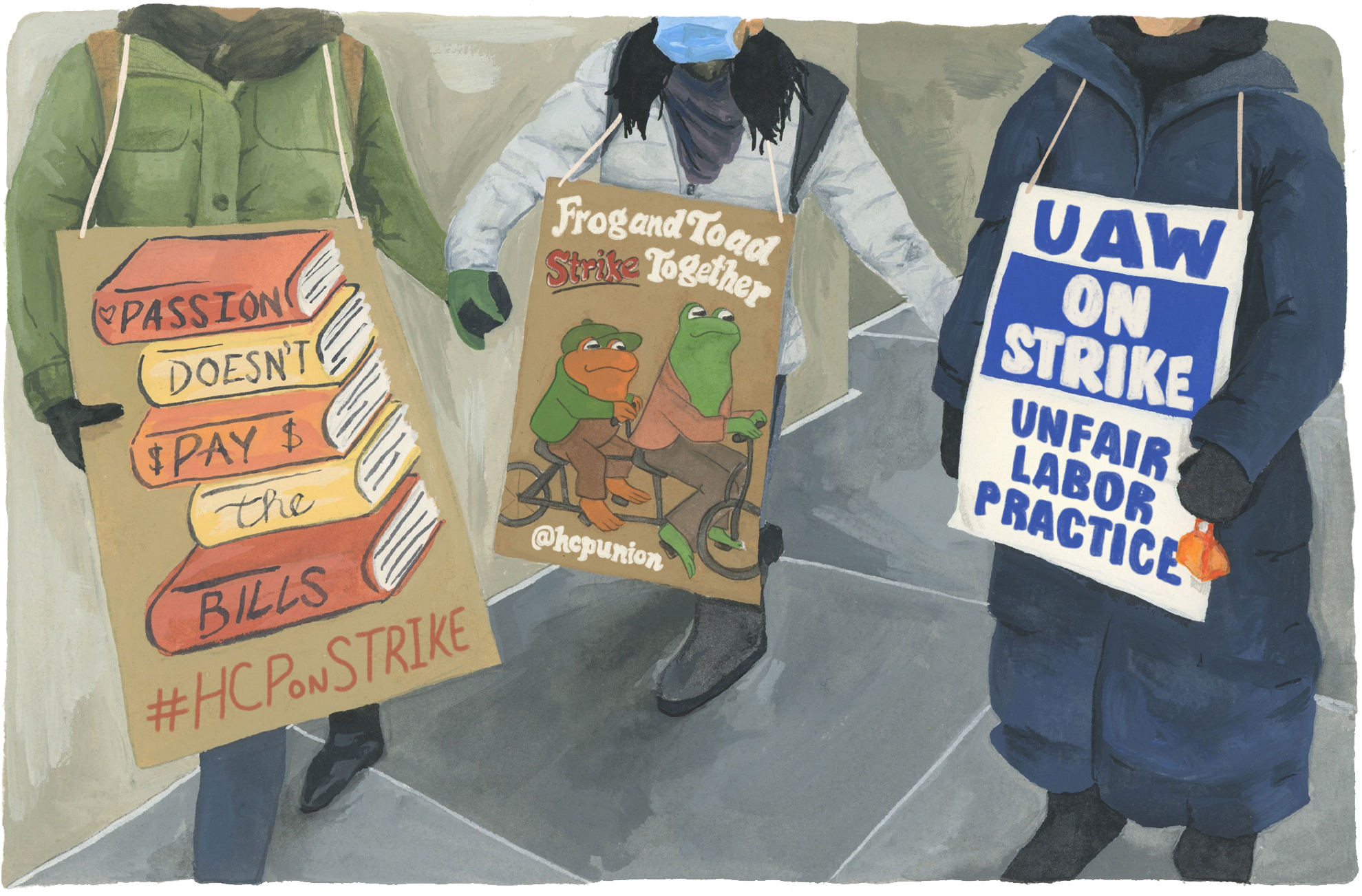
Why I’m Still on Strike: Portraits from the HarperCollins Picket Line
58 Days and 308,500 Steps (and Counting)
I really love my job. As a book cover designer, I get to read unseen manuscripts and create art to swaddle them in, a visual blanket in which to usher them into the light of day. Working for a major publisher like HarperCollins means my work will be seen around the world, in airports and indie bookshops alike.
I get to work on heartbreakingly beautiful novels, spine-chilling thrillers, and memoirs that make me weep. I love working with my team and being privy to the birth of so many new literary voices. And I genuinely get the sense that that’s how the rest of my colleagues feel. These people love making books.
Here are our duties: We read a text. We work to figure out how that text should be visually represented. We, riding paint fumes and too many cups of coffee, scrappily work to construct those visuals, cobbling together symbols and figures and words. We love stories. We create magic with our colleagues.
Much too often, we are overworked and underpaid. We are in what people call a “passion industry,” one that ultimately capitalizes on our love of stories to excuse low wages and a “you better be grateful to this opportunity” attitude. We wish it was different. We’re not quite sure how to make it different.
As a HarperCollins union member, I am participating in the open-ended strike that started on Thursday, November 10th. A bit of character backstory: our union (approximately 250 NYC-based workers) has been without a contract since April, and has been negotiating with the company since December 2021. Negotiations halted in early November, when the publisher refused to return to the bargaining table, and so we walked—forgoing pay to fight for livable wages, codified diversity measures, and union security.
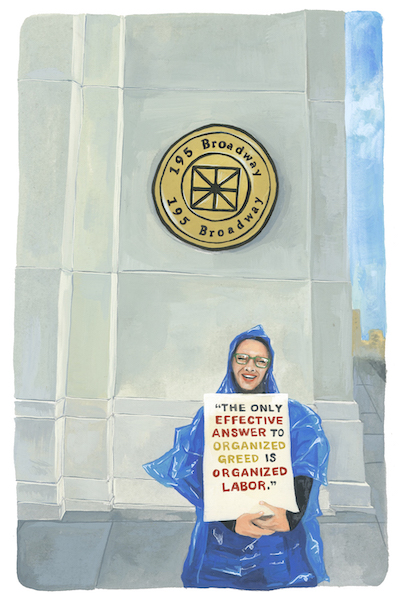
As the only union in the Big 5, we are in the unique position to push the needle forward for all publishing, not just HarperCollins—a weight and opportunity that isn’t lost on any of us. You can feel it in our picket line chants, in our weekly membership meetings, in our Slack conversations. It’s palpable—the outcome of this strike will determine if hundreds of brilliant workers will leave publishing forever, or if people will finally be able to see a future for themselves in an industry desperately in need of change.
We’re on Day 58 of the strike, with no idea of how much longer this will stretch on. I admit it: I’m terrified and exhausted. I also have never believed in our mission more.
Among our ranks, there are those who march the picket line each day—many traveling to the Financial District and connecting with colleagues infinitely more than they did before the strike. There are those who are remotely striking—handling media outreach; organizing with authors, agents and booksellers who stand in support; manning the DMs to answer questions; creating dank memes for social media. A whole workforce of editors, marketing assistants, publicists, sales associates, designers, and contract assistants have donned slightly altered hats to try to ensure a better workplace for each other.
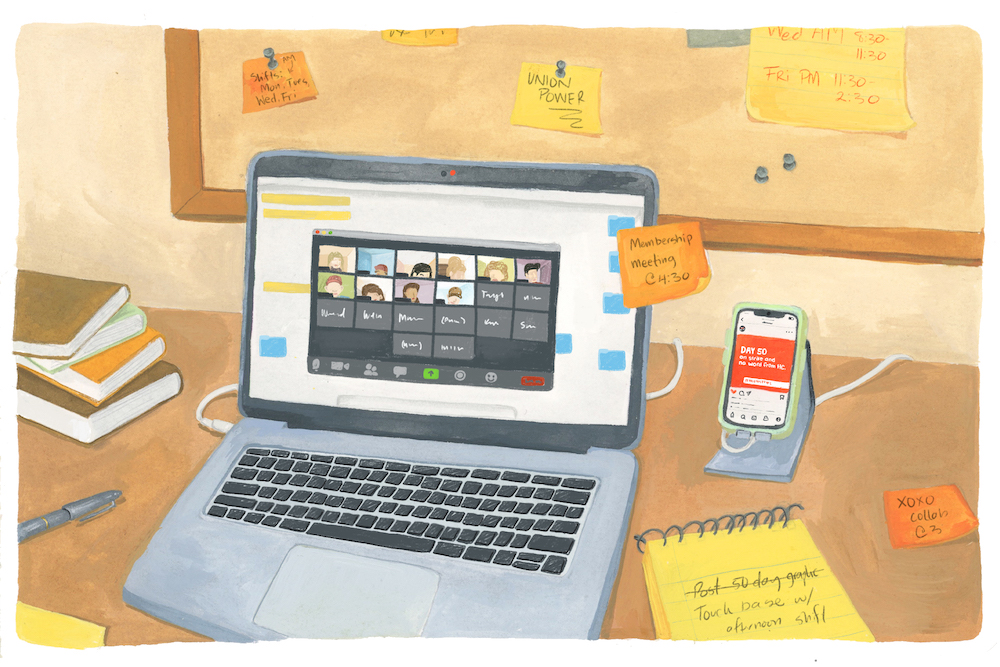
Some members have years and years of experience and started at salaries much lower than the current salary minimum. They understand first-hand how unlivable and inhumane today’s minimum is ($45k in NYC? Are you kidding me?!), how it ultimately keeps BIPOC and underrepresented voices out of publishing. We fight for ourselves and one another.
I am floored by my colleagues every time I get off the subway at Fulton Street to join the line. I’m a picket-line-walker. We chant and we walk and we try to call out each other’s bosses when we see them crossing the line to enter the building. When we’re particularly fatigued or it’s feeling too early for chanting, we walk our picket line circle in silence, with only the sounds of our tambourines and cowbells echoing off the skyscrapers.
I’ve found I can go on autopilot and walk in a loop for quite some time before my brain needs some other kind of stimulus. It’s a shockingly meditative and supportive place to be (not something that gets said about FiDi often!). Since the first day of our strike, I’ve marched 308,500 steps—approximately 105 miles, back and forth along Dey Street. HarperCollins’ assumption that they can wait us out is laughable.
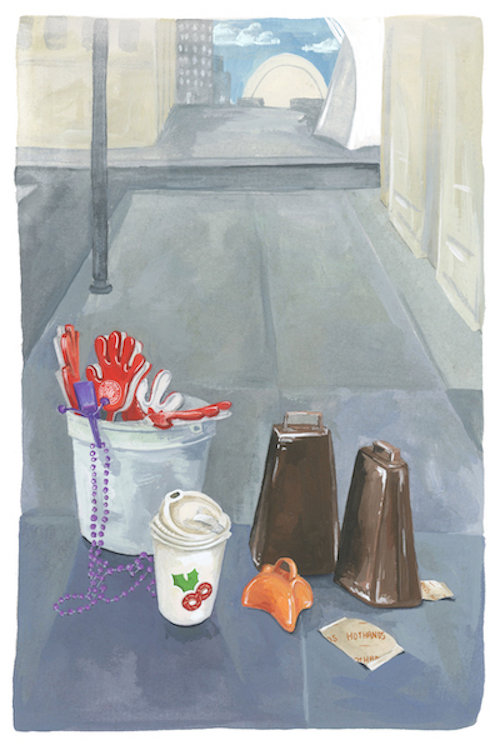
An octogenarian author named Bob has continued to join us on the line over the past months, as he did back in the 1970s when Harper & Row workers were on strike. Booksellers and fellow publishing workers have sent us baked goods and empanadas and hand warmers.
Right before the winter holidays, the union hosted a rally in the pouring rain, and hundreds of supporters gathered on Dey Street: authors, agents, translators, readers, loved ones. The sea of union-blue ponchos cheered and chanted and celebrated each other’s commitment to bettering publishing standards. A month later, hundreds gathered outside of the News Corp offices (our parent company) to do the same.
I have met children’s book editors while marching who get misty-eyed when they talk about how much they love their jobs making queer books for queer kids. I have met marketing assistants who have reworked our chants to call out our C-suite by name—counting how many houses they have, demanding that they come back to the bargaining table. I have watched as our union Slack becomes a space for colleagues to listen to each other’s worries and share HelloFresh codes with each other so no one runs out of food. Can you even imagine how impossible it must be to create beautiful, passionate books without these people? Can you believe what a mistake it is to underestimate their drive, their care, their willingness to fight for one another?
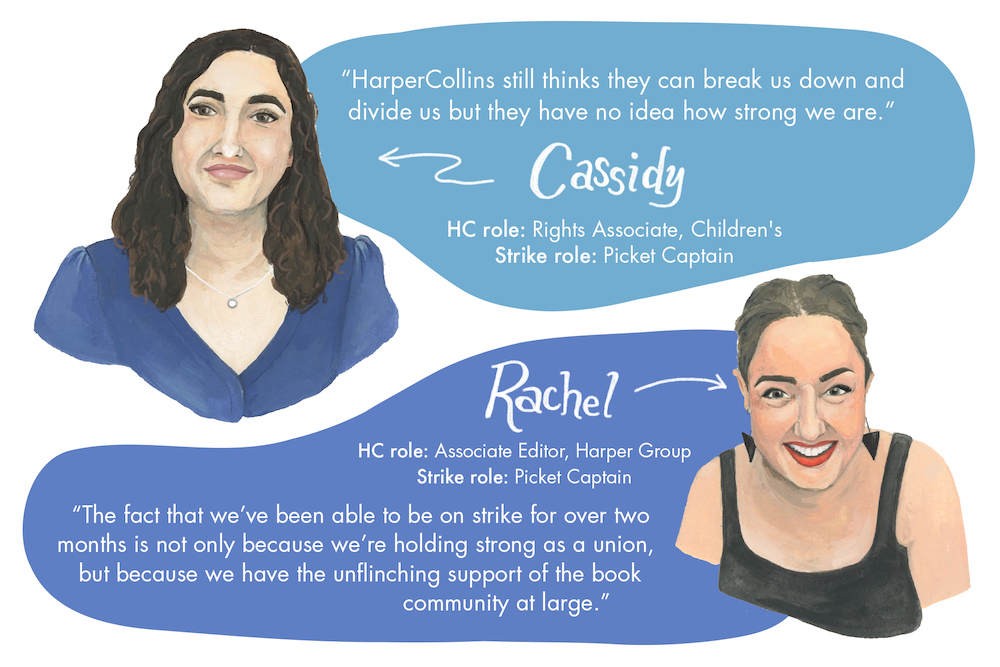
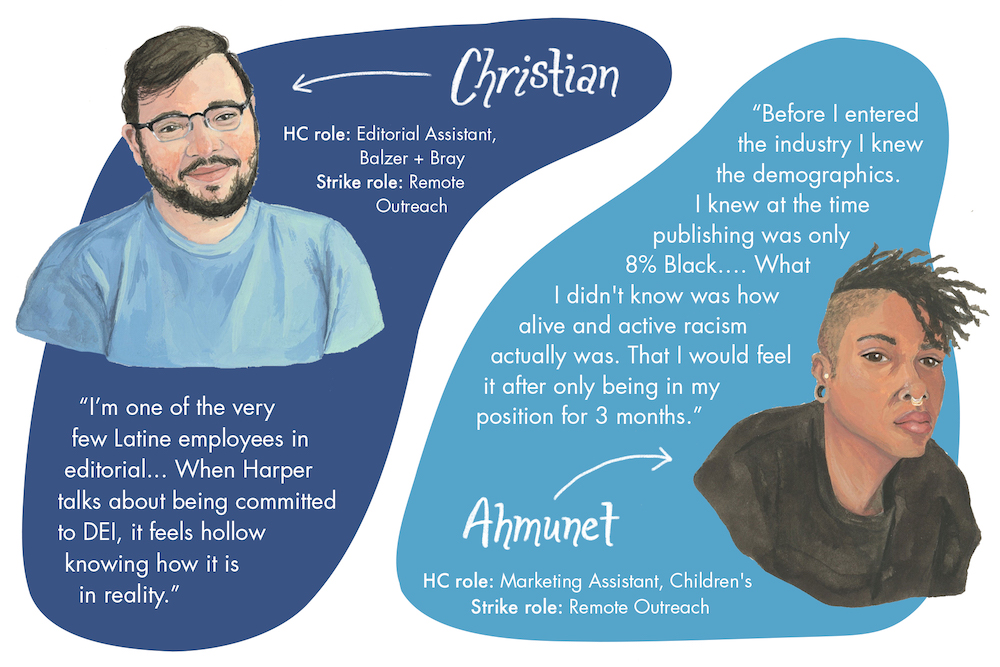
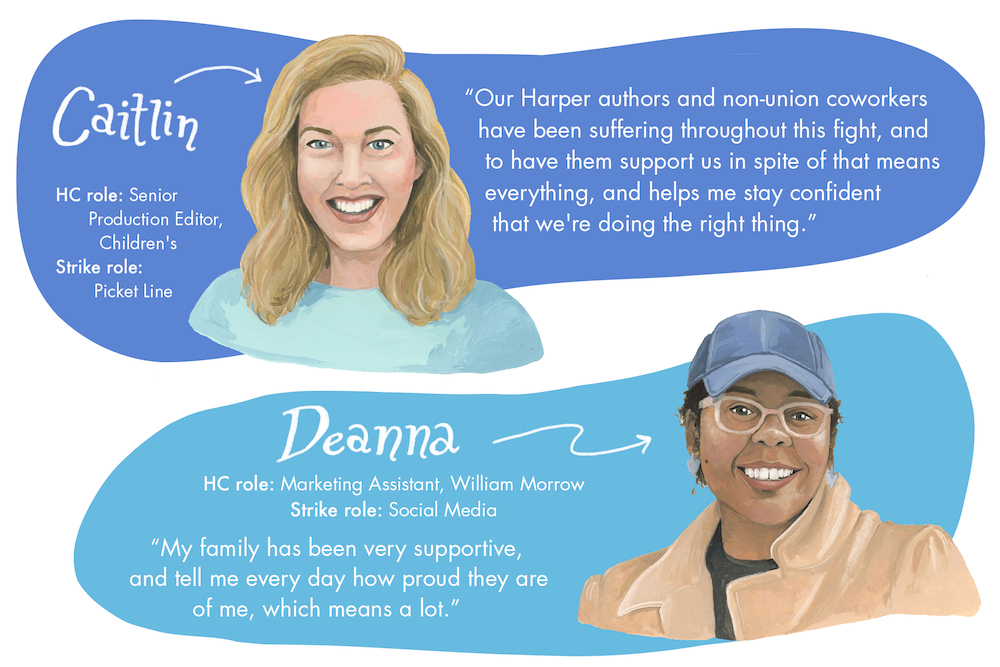
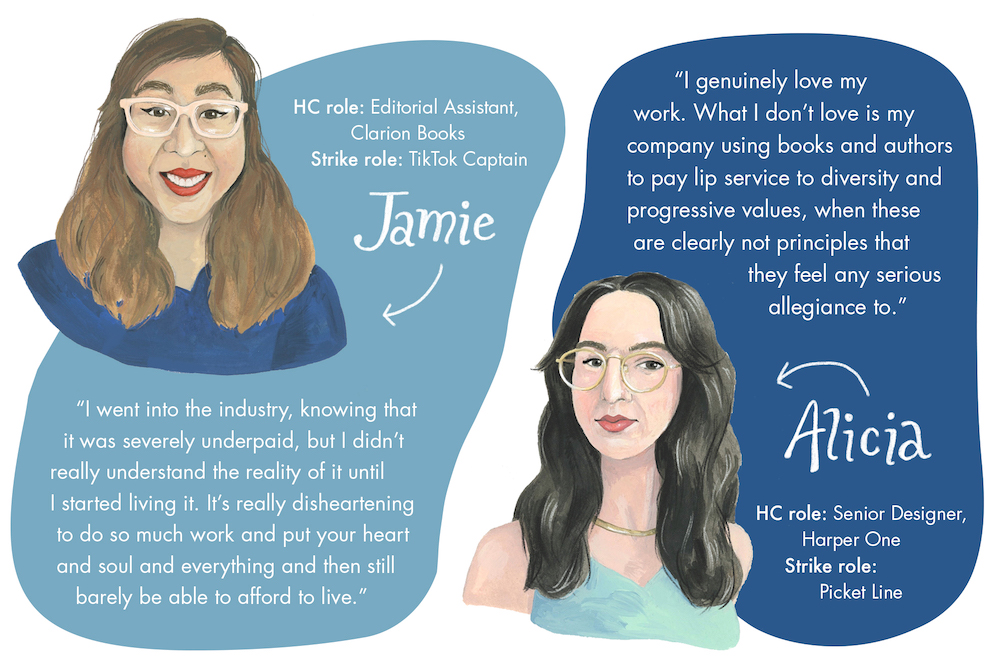
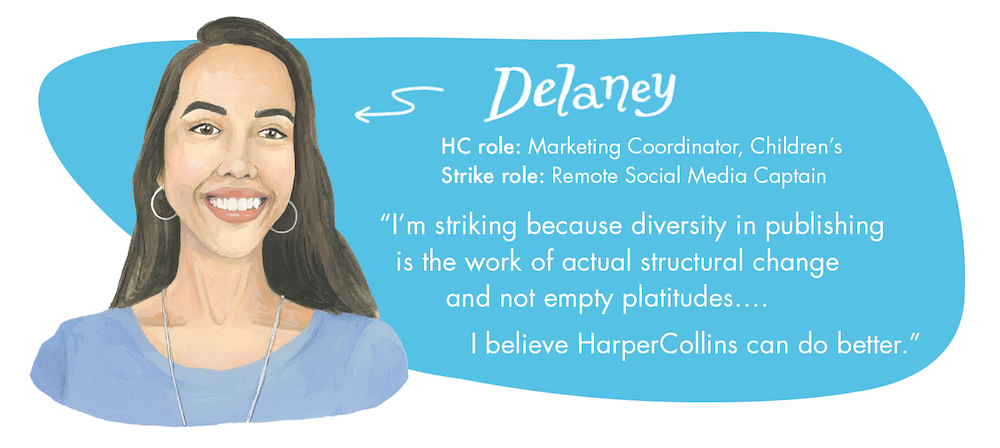
Olivia McGiff
Olivia McGiff is an illustrator and cover designer living in Brooklyn. Her work has appeared in the New York Times, the Daily Beast's Half Full, and Corriere della Serra's COOK. She is the coauthor and illustrator of forthcoming cocktail book, Cocktails in Color.












